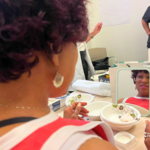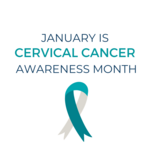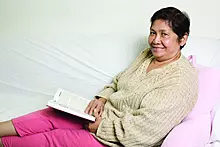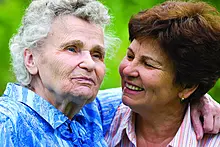
Through a new partnership with Christine Valmy, a beauty and skin care school, CancerCare has offered a series of skin care workshops led by oncology-trained estheticians for people diagnosed with cancer. The workshops, held in New York City in June, and in New Jersey in November, made it clear that this is an area of support missing for patients.









